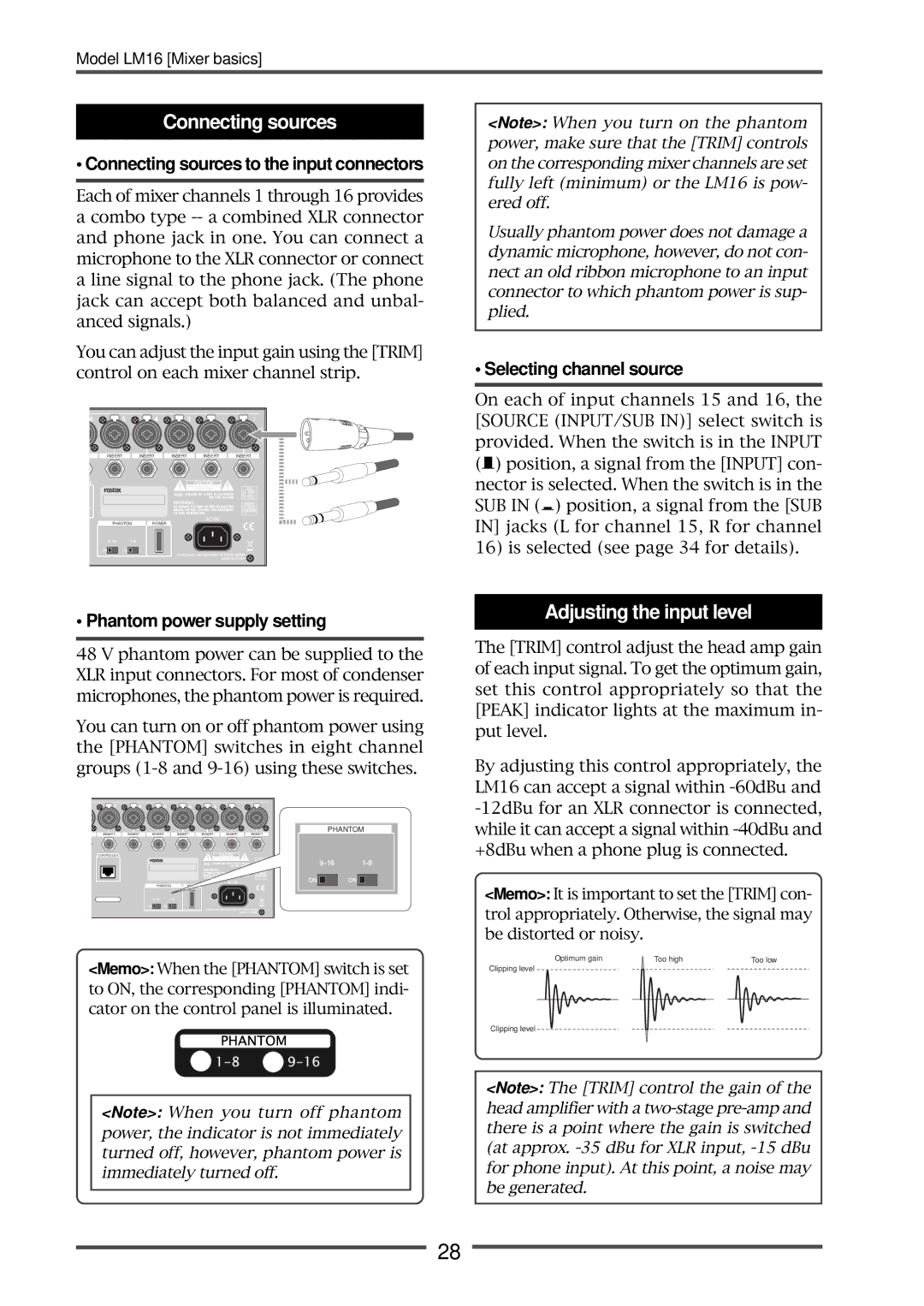
Model LM16 [Mixer basics]
Connecting sources
• Connecting sources to the input connectors
Each of mixer channels 1 through 16 provides a combo type
You can adjust the input gain using the [TRIM] control on each mixer channel strip.
T | INSERT | INSERT | INSERT | INSERT | INSERT |
K |
|
|
|
|
|
K |
|
|
|
|
|
| PHANTOM | POWER |
|
|
|
<Note>: When you turn on the phantom power, make sure that the [TRIM] controls on the corresponding mixer channels are set fully left (minimum) or the LM16 is pow- ered off.
Usually phantom power does not damage a dynamic microphone, however, do not con- nect an old ribbon microphone to an input connector to which phantom power is sup- plied.
• Selecting channel source
On each of input channels 15 and 16, the [SOURCE (INPUT/SUB IN)] select switch is provided. When the switch is in the INPUT (![]() ) position, a signal from the [INPUT] con- nector is selected. When the switch is in the SUB IN ( ) position, a signal from the [SUB IN] jacks (L for channel 15, R for channel 16) is selected (see page 34 for details).
) position, a signal from the [INPUT] con- nector is selected. When the switch is in the SUB IN ( ) position, a signal from the [SUB IN] jacks (L for channel 15, R for channel 16) is selected (see page 34 for details).
• Phantom power supply setting
48 V phantom power can be supplied to the XLR input connectors. For most of condenser microphones, the phantom power is required.
You can turn on or off phantom power using the [PHANTOM] switches in eight channel groups
|
|
|
|
|
| PHANTOM |
INSERT | INSERT | INSERT | INSERT | INSERT | INSERT | INSERT |
CONTROLLER |
|
|
|
|
|
|
|
| PHANTOM | POWER |
|
|
|
<Memo>: When the [PHANTOM] switch is set to ON, the corresponding [PHANTOM] indi- cator on the control panel is illuminated.
<Note>: When you turn off phantom power, the indicator is not immediately turned off, however, phantom power is immediately turned off.
Adjusting the input level
The [TRIM] control adjust the head amp gain of each input signal. To get the optimum gain, set this control appropriately so that the [PEAK] indicator lights at the maximum in- put level.
By adjusting this control appropriately, the LM16 can accept a signal within
<Memo>: It is important to set the [TRIM] con- trol appropriately. Otherwise, the signal may be distorted or noisy.
Optimum gain | Too high | Too low |
Clipping level
Clipping level
<Note>: The [TRIM] control the gain of the head amplifier with a
28
